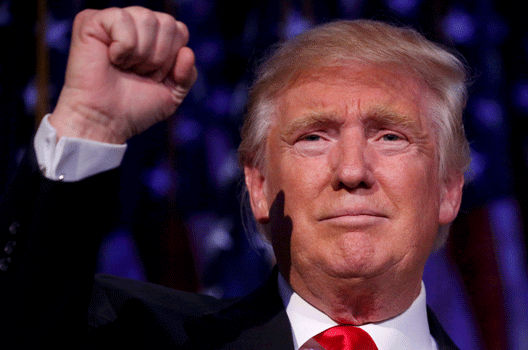 Donald John Trump will be the 45th president of the United States. He rode a wave of populist anger straight to the Oval Office on November 8 and now has a mandate to reverse years of neoliberal global and domestic politics. He will spend his time focusing on fixing those issues, many of which have been brought up by American citizens with reasonable concerns about employment, the economy, and society.
Donald John Trump will be the 45th president of the United States. He rode a wave of populist anger straight to the Oval Office on November 8 and now has a mandate to reverse years of neoliberal global and domestic politics. He will spend his time focusing on fixing those issues, many of which have been brought up by American citizens with reasonable concerns about employment, the economy, and society.
Still, the Atlantic Council believes many issues around the world require attention. Strategies formulated by the US government and its partners around the world that are designed to make the world a more stable and prosperous place—an outcome Trump says he seeks—are sorely needed.
So while he will respond to his mandate, Atlantic Council analysts have specific strategic questions and advice for President-elect Trump with which they seek to initiate a conversation on foreign policy and national security strategy. Here is what they have to say:
Daniel Chiu, Director, Strategy Initiative, Brent Scowcroft Center on International Security
How will you manage growing challenges from China and Russia without ignoring the vast array of challenges in other regions (like the Middle East, Africa, and South Asia) as well as from other issues (like emerging technologies, climate change, and energy security)?
John E. Herbst, Director, Dinu Patriciu Eurasia Center
How does the United States develop a strategy that strengthens transatlantic relations while increasing both NATO’s deterrence capacity against Kremlin revisionism and support for Ukraine in its struggle against Moscow’s hybrid war in the Donbas?
Frederic C. Hof, Director, Rafik Hariri Center for the Middle East
How will you work with Middle Eastern, transatlantic, and other international partners to end the violent conflicts now roiling the Middle East and to help unleash the region’s human capital and economic potential so that governance vacuums now occupied by extremists and terrorists can be filled instead by legitimate governance featuring a new social contract between governments and the governed, one defined by rule of law, accountability, citizen empowerment, and consent of the governed?
Andrea Montanino, Director, Global Business and Economics Program
Will the new president put forward policies to boost labor productivity before it will be too late? Trump’s mandate is to fix a United States he believes is no longer as “great” as it once was. During the campaign, he showed little proclivity for engaging with allies and partners, or working to solve many of the world’s toughest challenges. The world will not wait until Trump is ready, however. Today’s global climate presents the United States with unprecedented challenges. It is up to the Trump administration to face these issues head on.
J. Peter Pham, Vice President and Director, Africa Center
Given the pressing, global-level challenges you face from China and Russia, and the finite material and human resources available, what will you propose to do to secure America’s interests in Africa where the strategic stakes (demographic trends, natural resources, etc.) are more long-term, but no less real?
Given some of the things said during the course of the campaign about Muslims, how will you build ties with nearly half of the African continent, including some of our closest political, security, and economic allies (for example, Morocco)?
Peter Schechter, Senior Vice President and Director, Adrienne Arsht Latin America Center
Latin America is becoming a region of free trade, open markets, and civil society engagement at the very moment that large swaths of US and European voters are becoming more anti-trade and anti-globalization. How will you reconcile policy so that this 600-million-person region of increasingly Atlanticist values does not cease to see its future firmly rooted in the common prosperity of Western nations?
Image: US President-elect Donald Trump speaks at his election night rally in Manhattan, New York, US. (Reuters/Carlo Allegri)
